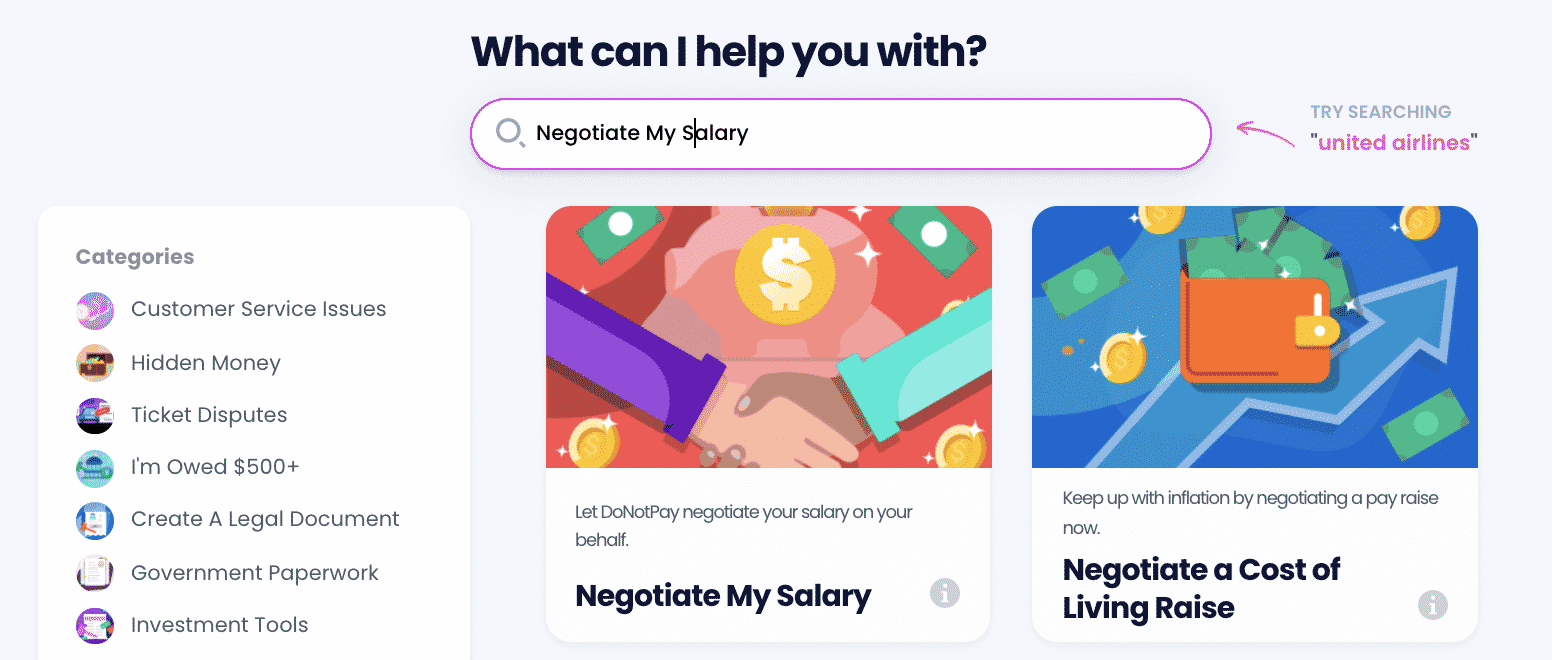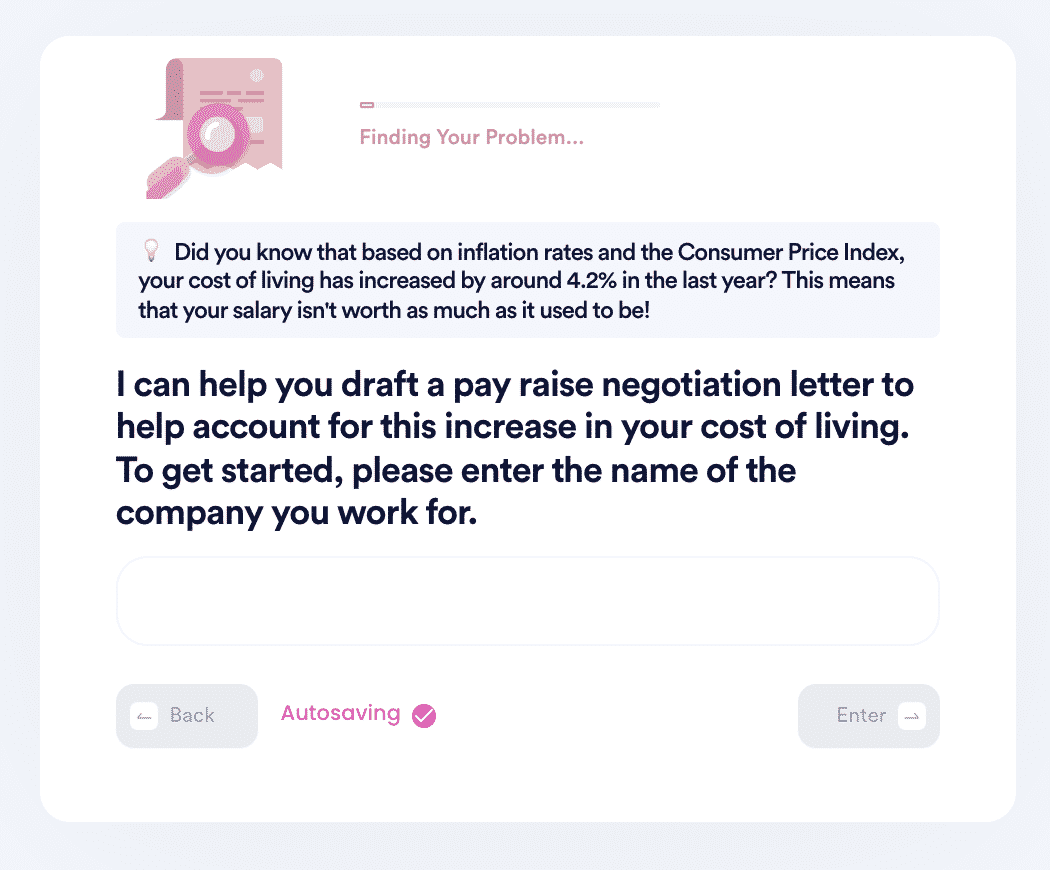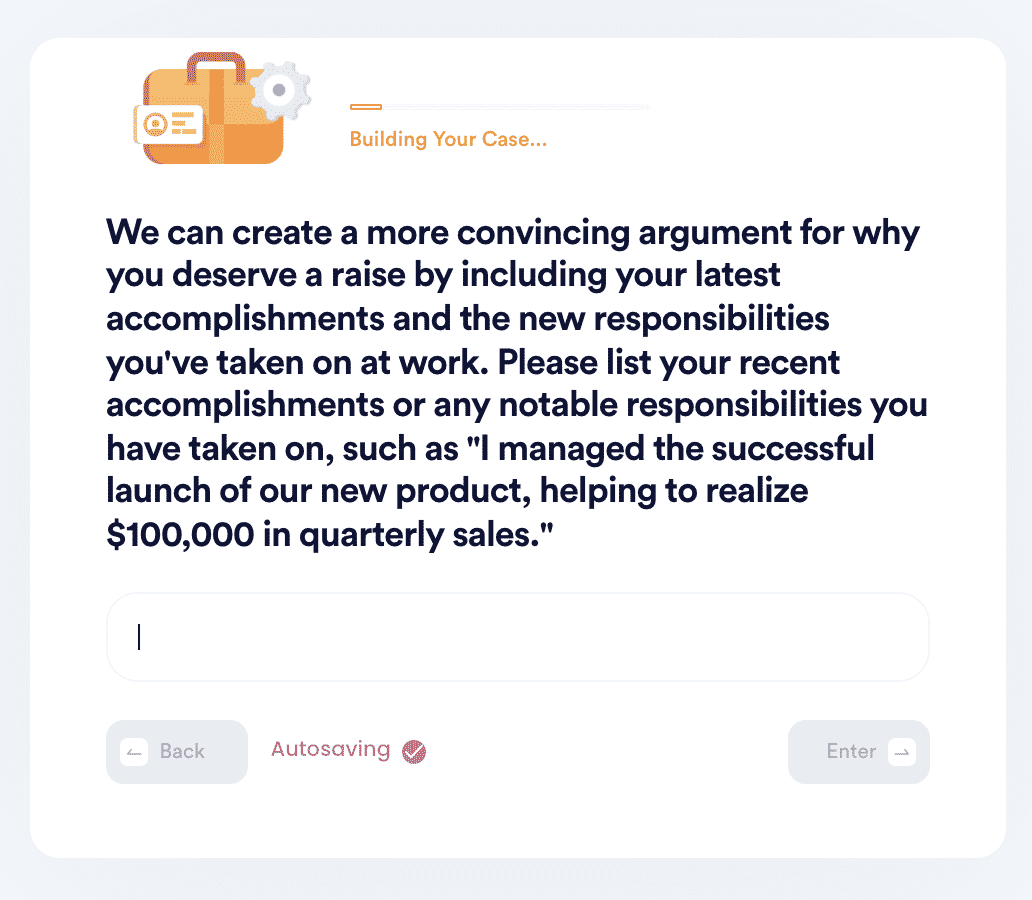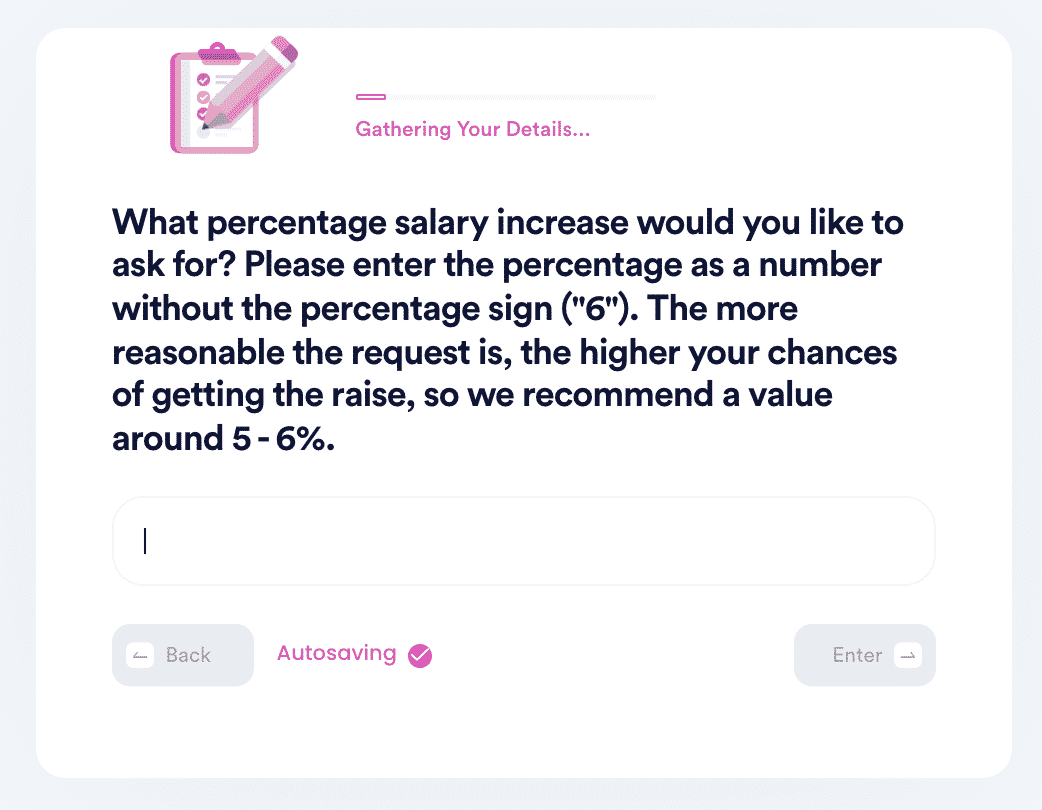When Is the Best Time of Day to Ask for a Raise?
Happy are those lucky enough to have jobs that let them negotiate for increased pay annually, without any extra hassle needed on their part. This salary boost might happen every year after performance reviews, or it could be automatic. Imagine that. The rest of us have to take matters into our hands and ask for that much-deserved raise.
While you may have gone through your elevator pitch a hundred times and faced down your fear of approaching the boss for this purpose, you also have to nail the timing. Timing is everything. Make your request for a raise at the best time, and the likelihood of a salary bump increases significantly. Read on to figure out when to have that fateful meeting with your superior(s).
The whole affair is quite delicate, and any jitters about confronting your employer about a salary raise are understandable. You can instead use DoNotPay to write to your company about a raise. We'll generate a professional salary negotiation letter that you can confidently present.
What Is the Best Time to Ask for a Raise?
Finding the can be nerve-wracking. They're almost always engaged with work stuff, so you need to make your move when their mood and the general state of the company are positive.
The seven best times to ask for a raise are listed in the table below.
| 7 Great Times to Ask for a Raise |
|
Let’s take a closer look at .
Mornings
Your employer might be more receptive to compensation talks in the morning before the day's happenings have them in full work mode. Yet, this doesn't mean to accost them at the elevator as soon as they've clocked in; let them settle down, fuel up with morning coffee, and respond to a few work emails. Around 11 a.m. would be ideal.
Fridays
Garfield, your work colleagues, and most likely your bosses as well aren't too pumped for work on Monday or when back from vacation. A Friday afternoon will be ideal for these talks as the energy is almost inverse to what it is on a Monday morning. Everyone's usually in better spirits because of the promise of the weekend.
When taking on new duties/responsibilities
In any setting, more work should equal more pay. A title change, promotion, or absorption of another colleague's duties necessitates a bump in one's compensation. Discuss your new roles with your employer and the prospects of any salary increases.
When You've Got a Win
It's a no-brainer that your superiors will approve of your efforts and feel more generous toward you after giving the company a big win. It gives you negotiating power as what you bring to the table is clear for everyone to see. This strategy is especially effective during new product launches, campaign roll-outs, and major events.
Three Months Prior to Your Annual Review
Many people consider the performance review as one of the best times to request a wage increase. It isn't the case, however. For most companies, performance reviews occur when the next year's fiscal budget has already been released. Making it out of performance reviews with a better salary necessitates the worker to begin the conversation about three months before budgets are set. If you're to get a raise, it'll happen about four or five months past the review period.
After Improving Your Credentials
Have you received new certification? Have you finally completed that master's program you've been working so hard on? A few improvements to the skills and qualifications segment of your résumé means a few more dollars added to the ol' paycheck.
When the Data Is on Your Side
Your company's state should also influence when and how you approach this topic with your boss. If business is slow and the company has announced it'll be laying people off, reconsider bringing up the conversation until a later date.
Learn about the company's financial condition. You can easily get financial documents such as national averages and earning reports, especially if the group is publicly traded.
How Often Should You Get a Raise?
You should wait at least six months since you began the job before . If you've been with the company for a year or longer, then your chances of getting a raise are even higher. Most employers would be willing to let you broach the topic once every year if you've been with the company for several years.
How Much of a Raise Should I Get Each Year?
On average, companies offer their employees a pay rise of around 3-5%, annually. This range might not seem like a lot, but remember, consistent salary increases will add up the longer you're with your employer, eventually becoming a considerable amount vis-à-vis the starting wage.
- In addition to — or instead of — the monetary boost, many companies include non-cash perks to show their appreciation of your services.
- This kind of raise may or may not factor in the percentage increase you're given.
- Non-financial benefits like career development programs increase the probability of improved future earnings.
It's worth noting that the raise you get is affected by certain factors. They’re explored in the table below.
| Inflation | If inflation increases are way beyond expected rates, your dollar may not take you as far as it usually does. Such situations may necessitate a review of your remuneration package with the higher-ups. |
| Location | Your employment location affects your starting salary as well as any future raises, according to the Bureau of Labor Statistics (BLS). |
| Sector / Industry | Your specific industry or sector has a lot to do with potential pay raises. You should research your competitors wages regularly. |
| Skill / Talent | Lastly, how well or how badly you carry out your responsibilities and duties factor into whether you'll get a raise and how much it'll be. |
How to Negotiate Your Salary with DoNotPay
Identifying the right time to have this sit-down with your boss is difficult enough. Proving your case in a professional, convincing, and professional manner might be a harder nut to crack. DoNotPay will help you create comprehensive salary negotiation documents ensuring you're putting the right foot forward in your raise request.
All you need to do is:
- Search "negotiate my salary" on DoNotPay.

- Enter the name of your company and the industry you work in, so we can find the right wage statistics for your role.

- Answer a series of questions regarding your qualifications and achievements, relocation expenses, and other job offers if applicable.

- Enter the new base salary you would like to request.

And that's it! Once the information is finalized, DoNotPay will generate an official salary negotiation letter that you can then email or present to your employer.
Why Use DoNotPay to Ask for a Raise
DoNotPay is a great way to ensure you're remunerated as per your efforts. Every worker should feel that their services are reasonably appreciated. The DoNotPay platform increases your request's chances of approval while also being easy to operate.
Try some of our other solutions to help you get better pay:
- How to ask for a raise
- How to ask for a raise via email
- How to negotiate your salary via email
- How to negotiate on the phone
- How much of a raise you should ask for
- Whether it's the right time to negotiate
- How to get a raise
- How often you should get a raise


